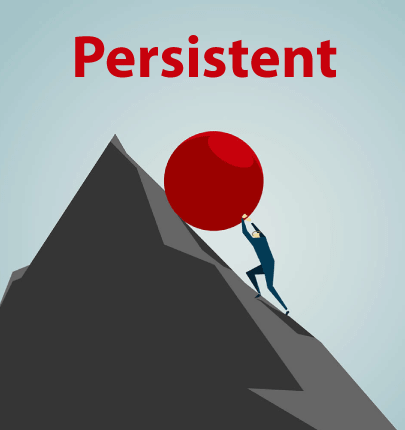Finding jobs
Learn about different ways jobs are posted, and effective methods for applying to enhance your job search.
Part 1
Warm-up
Answer the questions
What did we discuss in the last lesson?
Do you often change jobs?
How many companies have you worked for?
Part 2
Vocabulary
Read the word, its’ meaning, and the examples
Then make up your own sentences using the word.
Student can skip the words they already know.
competency
/ˈkɑːm.pə.tən.si/
an important skill that is needed to do a job.
His competency in computer programming landed him a great job at the tech firm
engage
/ɪnˈɡeɪdʒ/
to interest someone in something and keep them thinking about it.
The teacher uses games to engage her students in class.
Fun stories engage kids better than just listing facts.
tailor
/ˈteɪ.lər/

to adjust something to suit a particular need or situation
He decided to tailor his speech to the younger crowd.
scenario
/səˈner.i.oʊ/

a description of possible actions or events in the future
We discussed various scenarios for our school project.
persistent
/pərˈsɪs.tənt/

Someone who is persistent continues doing something or tries to do something in a determined but often unreasonable way
His persistent effort led to a promotion at work.
Persistent practice is key to mastering a new language.
fast-paced
/'fæst 'peisd/

happening very quickly.
The fast-paced nature of the game made it exciting to watch.
Make up your own sentences using the words.
Part 3
Different ways jobs are posted
Answer questions, then read the list of different ways jobs are posted
Discussion
Where do you usually look for job postings related to your field of interest?
What sources have you found most helpful when researching potential job opportunities?
Ideas:
- maybe referrals from friends
- invited from company
- …
Sample answer
- Online job boards, company websites, social media, university career centers
- Networking events, professional associations, industry-specific forums, referrals from friends or colleagues)
- Online job boards (e.g., Vietnamwork, ITviec, Indeed, Monster)
- Social media platforms (e.g., Facebook, Twitter, Linkedin)
- Company websites
- University career centers
- Networking events
- Professional associations
- Referrals from friends or colleagues
- Job fairs
- Recruitment agencies
- Internship programs
- …
Do you know about each of the following ways that jobs are posted?
If not, I (teacher) will explain/discussion with you to make it clear
Explain
Online job boards (e.g., Vietnamwork, ITviec, Indeed, Monster)
- Online job boards are websites where companies post job openings. Examples include Vietnamwork, ITviec, Indeed, and Monster.
Social media platforms (e.g., Facebook, Twitter, LinkedIn)
- Companies often post job openings on their social media pages or in groups related to their industry.
Company websites
- Many companies have a 'Careers' section on their websites where they list current job openings.
University career centers
- University career centers often have job boards/forum and resources to help students find employment.
Networking events
- Networking events are gatherings where professionals meet and share job opportunities.
Professional associations
- Professional associations related to your field often have job boards and resources for members.
Referrals from friends or colleagues
- Referrals from friends or colleagues can lead to job opportunities that might not be advertised publicly.
Job fairs
- Job fairs are events where multiple employers gather to meet job seekers and discuss job opportunities.
Recruitment agencies
- Recruitment agencies help match job seekers with employers looking to fill positions.
Internship programs
- Internship programs offer temporary positions that can provide valuable experience and may lead to full-time job opportunities.
Part 4
Reading comprehension
Read the article (read text aloud) and answer questions.
Teacher helps student correct their pronunciation.
Effective ways to find jobs
Finding a job in today’s fast-paced market requires a strategic approach. Here are some effective ways to enhance your job search.
Update your CV
Highlight your competencies by including relevant projects and achievements. Tailor your CV to each job application, aligning your skills with the job description.
Network actively
Engage with professionals through online forums, blogs, and social media platforms like LinkedIn. Attend industry meetups and conferences to build connections.
Tailor your applications
Customize each application. Research the company and role, and tailor your cover letter and resume to reflect how your skills fit the position.
Prepare for interviews
Practice common interview scenarios and technical questions. Being well-prepared shows your competencies and confidence.
Develop soft skills
While technical skills are essential, soft skills like communication and teamwork are also crucial. Highlight these in your CV and during interviews.
Stay persistent
The job search can be challenging. Stay persistent, keep applying, and learn from each experience to improve your approach.
Continuous learning
Stay updated with industry trends through online courses and certifications. This enhances your competencies and shows employers you are proactive.
By updating your CV, networking, tailoring applications, preparing for interviews, developing soft skills, staying persistent, and continuously learning, you can navigate the job search process more effectively.
Check your understanding
Why is it important to tailor your CV and applications for each job?
How can networking help in finding a job?
Sample answer
- To align your skills and experience with the specific job requirements, making you a better fit for the role.
- Networking allows you to engage with professionals, build connections, and uncover job opportunities that may not be advertised publicly.
Discussion
What do you think is the hardest part of finding a job? Why?
Ideas:
- Many applicants for each job.
- Writing effective resumes and cover letters is hard.
- Performing well under pressure in interviews.
- Entry-level jobs still often require experience.
- Lengthy process
Do you believe getting certifications helps in finding a job? Why or why not?
Ideas:
- Yes, Demonstrates expertise
- Yes, Enhances your resume
- Yes, Provide a competitive edge
- No, Not always necessary
- No, It depends on the field
- No, soft skills also matter
Part 5
Listening
Listen to the conversation and answer the questions.
Click to play the Audio
In which field is the man looking for a job?
- education
- medicine
- technology
Which statement best describes the pay for the job?
- Employees can receive periodic pay increases based on their work.
- The salary for the position is above the industry average.
- Workers are paid on a commission basis depending their sales.
What are some of the benefits that the company provides?
- insurance, paid vacation, and a company vehicle
- paid vacation, opportunities for promotion, and insurance
- opportunities for advancement, insurance, and a free bus pass
What does the future hold for the industry that he is considering?
- growing, yet uncertain
- expanding and secure
- contracting, yet stable
From the conversation, what do we know about the man’s educational background?
- He dropped out of high school.
- He has some post-secondary education.
- He has a college degree.
Sample answer
1.C
2. A
3. B
4. A
5. B
Transcript
Kelly. So, have you found a job yet?
Josh. No, but, I have a few leads, so things are looking up.
Kelly. But isn’t that what you always say?
Josh. Well... uh... this time is different.
Kelly. What are you looking for this time, then?
Josh. Actually, I want to work for a Web hosting company.
Kelly. What would you do there?
Josh. Well, in a nut shell, Web hosting companies provide space for people to store and run their Websites. Does it sound like I know what I’m talking about?
Kelly. Oh, yeah, sort of.
Josh. Well, and then, sort of? Well, they allow people to run their Web sites without having to buy and maintain their own servers, and I’d like to work in technical support, you know, helping customers resolve computer-related problems with their sites. And you know I’m a good communicator.
Kelly. So, how’s the pay for that kind of job?
Josh. Well, most people I know start out with a very reasonable salary; you can earn pay increases depending on your performance.
Kelly. So, what about benefits?
Josh. Oh, the benefits are pretty good. They provide health insurance, two weeks (of) paid vacation a year, and opportunities for advancement. And in the end, I’d like to work in a management position. You know, sitting back, enjoying the view out of the twentieth-story window of the office building. Something like that.
Kelly. Well, is there any long-term job security in a job like that? Josh. Uhh. That’s hard to tell. I mean, the Internet is booming, and these kinds of companies are sprouting up everywhere, which is a good thing, but just like the dot-com era, you never know how long things will last.
Kelly. Well, have you ever thought about going back to school to improve your job skills?
Josh. Wait, wait. What are you suggesting?
Kelly. Well, you know, more training might help you land a better job. Josh. Wh... wh... Are you trying to say something about my current job? I mean, is there something going on here? I mean, what are you saying? Kelly. You know, you did drop out of college.
Josh. I know, I know, but I don’t know. I’m just seeing my current job at McDonalds as a step up. McDonalds! Yeah, but, you know, I don’t have the resources to go back to school at the moment; however, the job I am looking at will pay for some classes after I have been with the company for six months.
Kelly. Well, it looks like you have things planned out this time.
Josh. If I last that long.
Part 6
Debate
Topic: Is it better to stay with one company for many years or to change jobs frequently to increase your salary? Which do you prefer and why?
In a debate on this topic, you need to talk about the advantages and disadvantages of staying with one company versus changing jobs frequently.
Argument preparation (3 minutes)
Student has 2-3 mins to think about their arguments.
Suggesting points:
- Staying with one company: Job security, deeper understanding of company culture, potential for promotions and leadership roles, strong relationships with colleagues.
- Changing jobs frequently: Higher salary increases, diverse experiences, broader skill set, faster career advancement.
Debate (8 minutes)
Student has 2-4 mins to present their arguments.
Teacher helps student to expand their ideas, think critically & more views about this topic (by asking more questions about this topic).
Sample answer
In today's dynamic job market, deciding whether to stay with one company for many years or to change jobs frequently is a significant career choice. Personally, I prefer changing jobs frequently to increase my salary. This approach offers several advantages.
Firstly, changing jobs often leads to higher salary increases. Many companies offer significant pay raises to attract new talent, which can be more substantial than the incremental raises given to existing employees. Secondly, moving between different roles and organizations allows me to gain diverse experiences and develop a broader skill set. This versatility can make me more adaptable and valuable in the job market.
Lastly, frequent job changes can result in faster career advancement. Each new position can bring higher responsibilities and new challenges, accelerating professional growth.
However, I understand the benefits of staying with one company, such as job security, a deep understanding of the company culture, and strong relationships with colleagues. Ultimately, the choice depends on individual career goals and personal circumstances. For me, the opportunities for growth and increased earnings make frequent job changes the preferred option.
Part 7
Discussion
Let’s use the vocabulary you’ve learned during the lesson and talk about the following topics/questions freely!
Teacher helps student expand and correct the answers
What strategies can be effective for finding jobs in your industry?
Where can one find online/remote job opportunities in Vietnam?
What skills do you believe will make it easier for you to secure a job?
Do you plan to apply to multiple companies or just one for interviews?
How important are communication skills compared to technical skills in the job search?
Ideas:
- Both are important
- Depend on the job
- Helps you grow
What type of company would you prefer to work for: a startup, a family-owned business, a small company, a medium-sized company, or a large corporation?
Do you like remote jobs? What will you do to become a remote worker in your industry?
Ideas:
- Flexibility
- No commute
- Improve skills
- Search remote jobs
- …
Review
Let’s review the lesson with teacher
6 new words in this lesson
Learn different ways jobs are posted
Discuss about job opportunities in Vietnam
See you next lesson
Homework
Do homework
Write list of things/your strategies that you will do/you did to find the jobs in your industry

